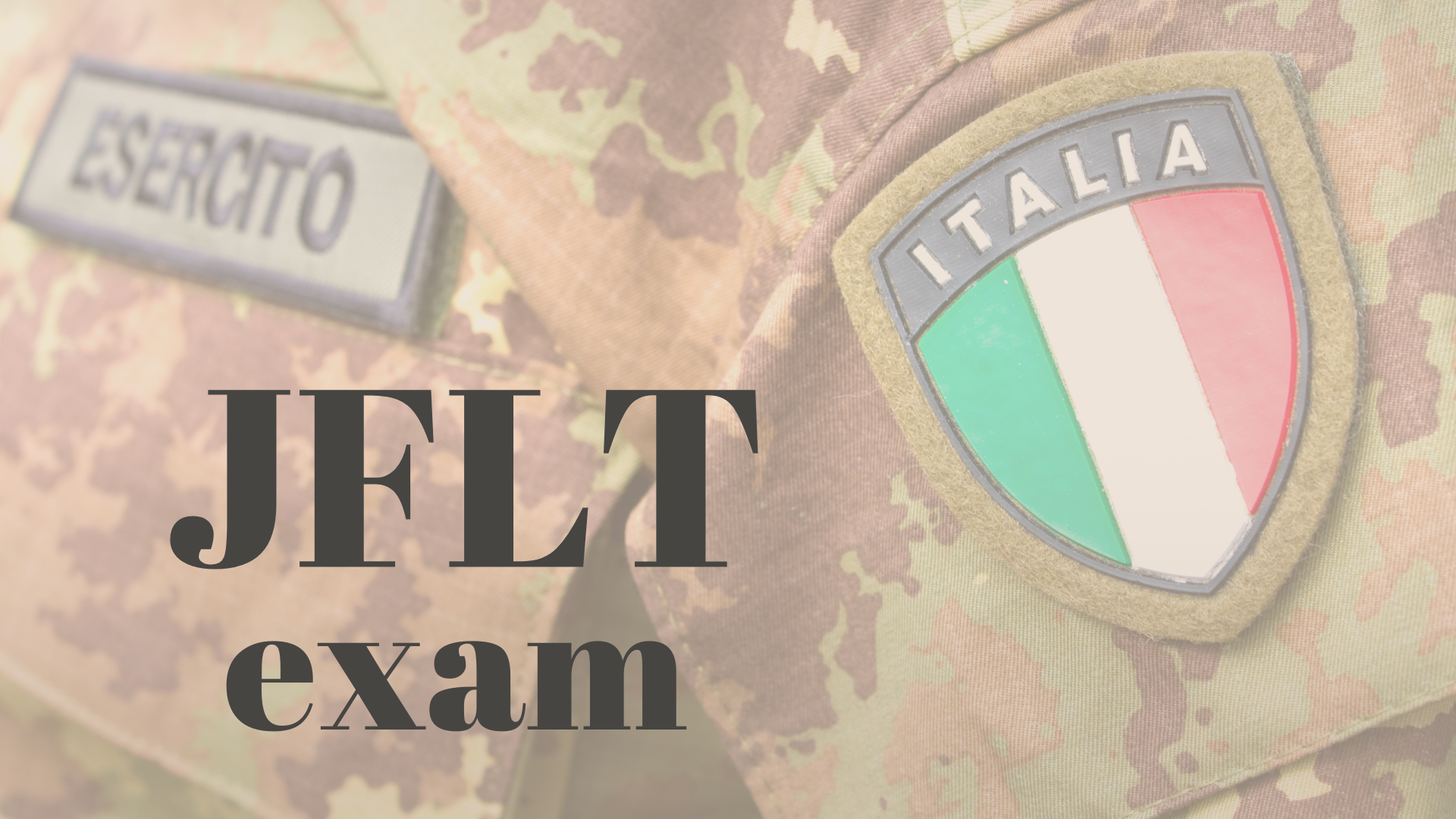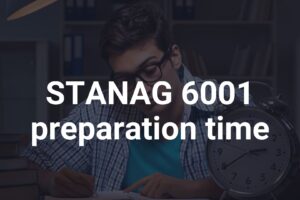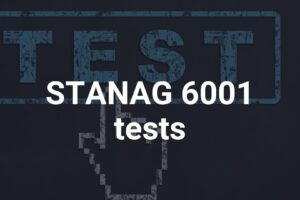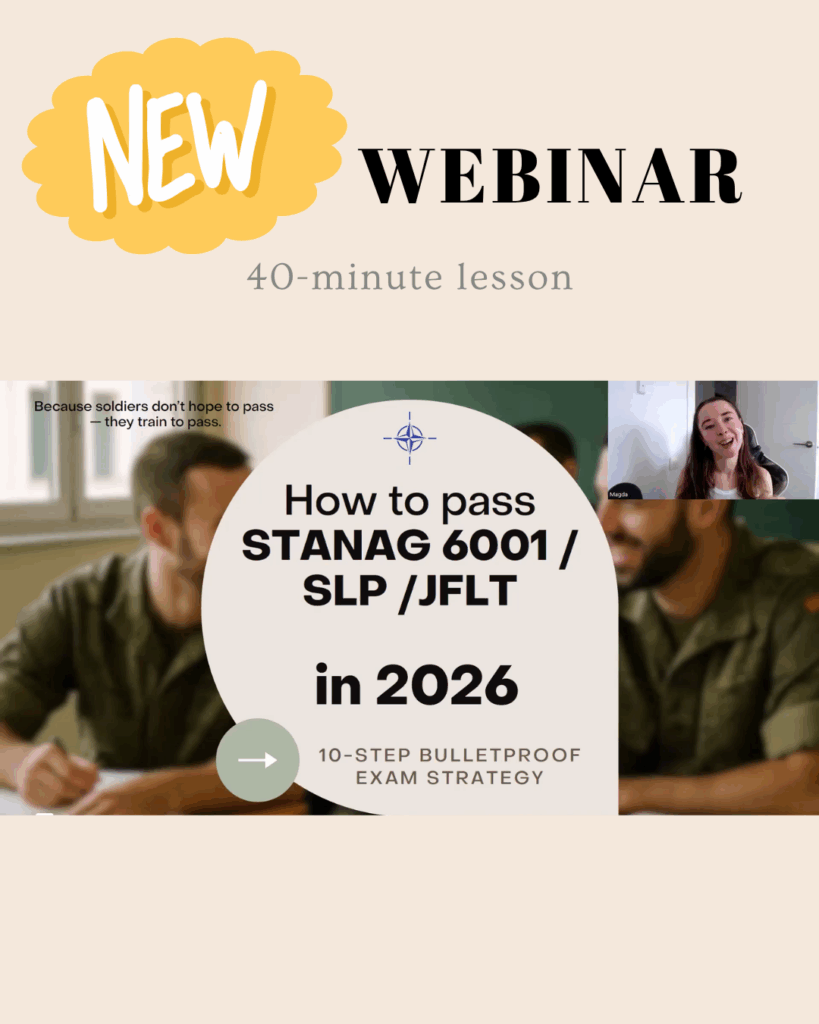
JFLT – Joint Forces Language Test (Il J.F.L.T.) – Italians do it differently
Today I’m going to tell you a little bit about the exam that members of the Italian Armed Forces (militari italiani) take. I’ll also recommend some tools that may be of help if you are preparing for the exam on your own.
Most of the NATO countries use ‘Stanag 6001’ or ‘SLP’ names, whereas in Italy the exam is called JFLT. There is also one significant difference between the exam taken in Italy and other countries.
JFLT is a multi-level test which means that the level is gradually growing. Students start with level 1-type questions (15 Qs), then Level 2 (again 15 Qs), to finally get to Level 3 (15 Qs) and end with Level 4 questions (yep, 15 again).
If you are looking for a study material for JFLT exam – check out JFLT E-book + JFLT Speaking challenges Masterclass.
Let’s talk about 4 parts of the exam.
READING AND LISTENING
Receptive skills part – Reading and Listening are taken on the same day.
Students have to go through 60 short texts and short audio recordings and answer multiple choice questions.
If you would like to practice exam-style listening tasks, you may want to consider purchasing The Listening Booster. It includes 50 Level 3 listening tasks. I recommend it if achieving Level 3 is your goal.
If reading is not your strong suit (it’s often the most underestimated exam skill!) I offer the Reading and Listening Course for Level 3 with some task analysis and reveal traps the examiners set.
Writing and Speaking are usually taken on the next day.
WRITING
When it comes to Writing, depending on the Level, students are asked to perform the following tasks:
Level 1 – a short note
Level 2 – a letter / a report / a short essay
Level 3 – an essay (usually related to some geopolitical or military issues)
Need help with writing?
I offer the SLP Writing Course with both theoretical and practical part (when you get feedback on your writing assignments). It is suitable for both SLP and JFLT exams (Levels 2 and 3).
SPEAKING
In the Speaking part, students have to perform a small talk, a role-play and if they are aiming at the Level 3 – a discussion (or another role-play, it’s up to the examiners). If it’s a discussion – you may be sure that you will be challenged with making hypotheses and speculating, as they are considered higher order thinking skills and demonstrate an advanced command of the language.
If you struggle with natural roleplays or are not sure whether an expression is formal or informal, I have created Functional Language Ebook for Stanag / SLP / JFLT, where you will learn how to perform exam tasks: apologize, thank, request information, hypothesize or speculate. It’s suitable both for Level 2 and 3.
More details about the JFLT exam (task description and timing) can be found on my YouTube channel, especially in this video: JFLT exam.
Let me know if you have any questions or video/blog post requests, I’ll be happy to help!
Good luck on your exam ragazzi!
Tag:JFLT




